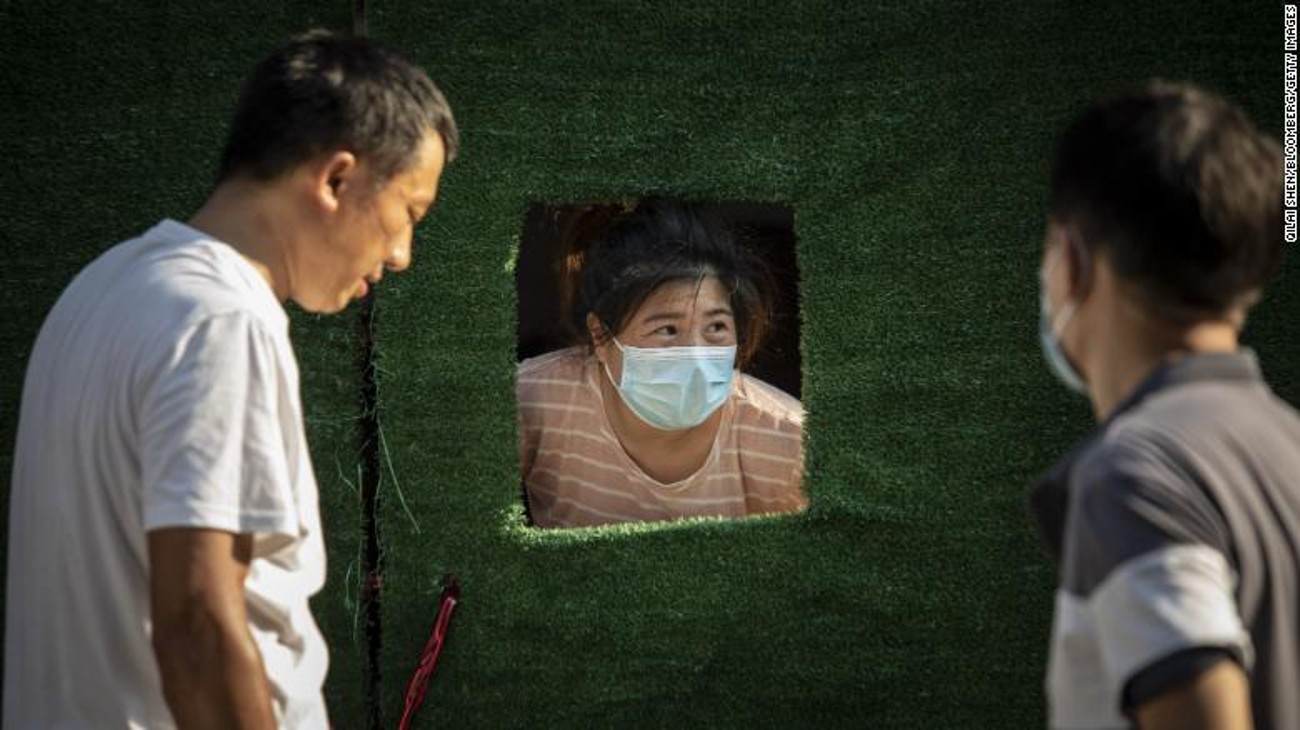Millions of Shanghai residents braved sweltering heat on Tuesday to queue for mandatory COVID-19 tests, as the rising number of cases and the emergence of a highly infectious omicron subvariant sparked new fears of a return to mass quarantine. Shanghai authorities ordered most of the city’s 16 districts to undergo two rounds of testing between Tuesday and Thursday, after a case of the new subvariant BA.5.2.1 was detected in the community on Jan. 8. July. The highly transmissible BA.5 variant is spreading rapidly around the world and is considered a major threat by Chinese authorities as it is the last major country to adhere to a strict zero-Covid strategy.
New omicron subvariants have been reported in several Chinese cities, including the capital Beijing, the northeastern port city of Dalian, and the central city of Xi’an, which was locked down for seven days due to the outbreak. The surge in cases — and accompanying restrictions — comes as a scorching heat wave sweeps the country. In Shanghai, authorities raised the highest level of red alert on Sunday as temperatures reached 40 degrees Celsius (104 Fahrenheit). The sweltering heat has made mass testing even more excruciating for residents — some of whom have to queue for hours — and for covid workers, who are covered from head to toe in airtight PPE.
On Chinese social media, photos of workers in hazard protection suits lying on blocks of ice went viral, while health experts warned of the possibility of heat stroke among covid workers, who spend long hours outdoors with thick protective clothing. Shanghai saw a spike in infections earlier this month, due to an outbreak linked to a karaoke bar. In the last 10 days, more than 400 cases have been recorded.
The growing outbreak fueled fears that the mall is headed for a mass closure again, just weeks after its residents emerged from two months of grueling home confinement. The city of 25 million people ended its citywide lockdown in early June, but has continued to impose harsh restrictions, including relentless testing and sudden quarantines in precincts where Covid cases have been found. .
Since Tuesday, 240 neighborhoods in Shanghai have been marked as medium or high risk areas for covid and have been confined.
Shanghai authorities have repeatedly denied that a city-wide lockdown is imminent, but that has not convinced residents, who noted authorities had also made similar claims in March in the run-up to the previous lockdown. On Monday, two Shanghai neighborhood committees said residents should “prepare food and medicine that can last 14 days at home, to be safe.”
A health worker puts her hands on a block of ice in front of a fan to cool down at a Covid testing station in Shanghai on July 12.
The notices, after being widely posted on the internet, caused panic among residents, many of whom are scarred by their prolonged isolation in April and May, which led to widespread food shortages and blocked access to medical care. In response to the uproar, a neighborhood committee worker told the state-run Health Times newspaper that the proposal was meant to prepare residents for the growing outbreak, since close contacts — as well as secondary contacts — of an infected case can also cause neighborhood lockdown.
“Well, let’s spend our whole lives living in fear of food shortages and the shadow of hoarding daily necessities,” read a comment on Weibo, China’s Twitter-like platform. “It’s been more than three years, when will it end? How many trienniums do people have in their lives? Enough is enough,” said another.

